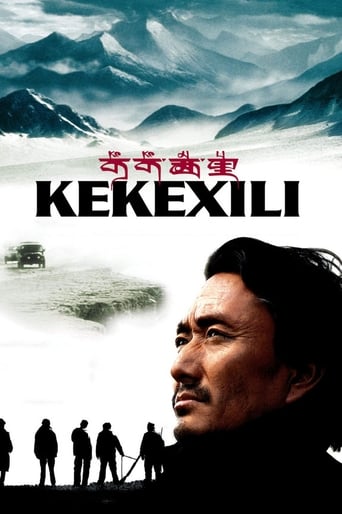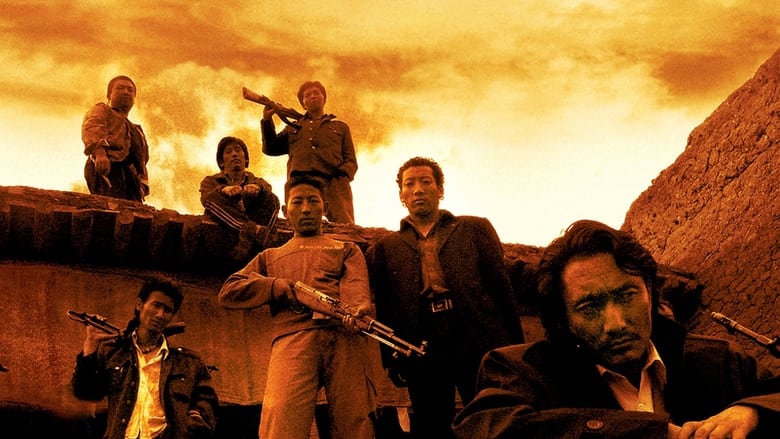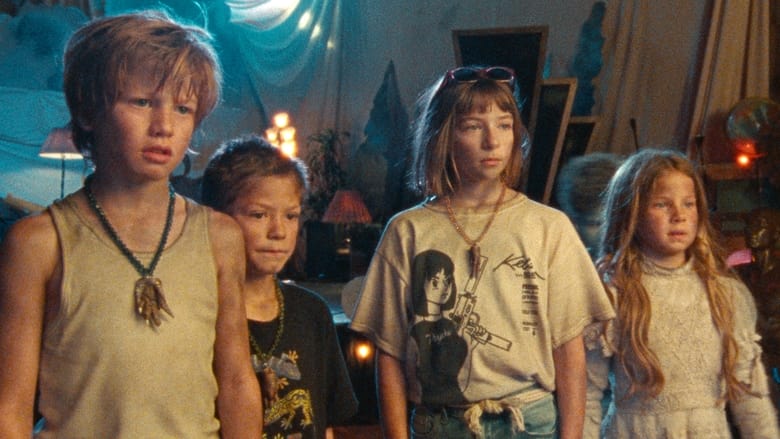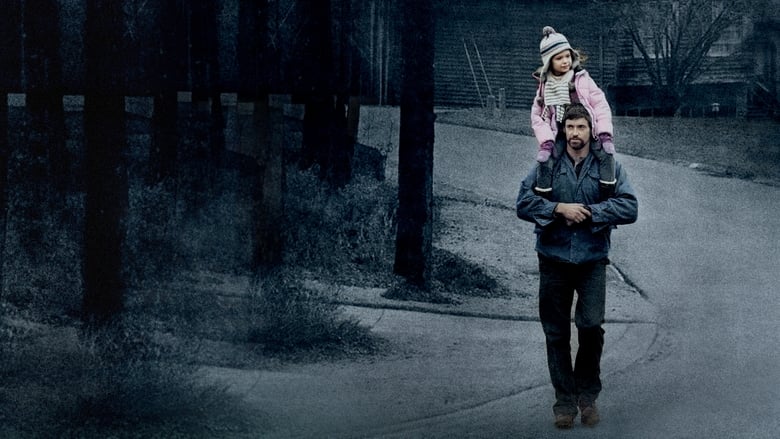A moving true story about volunteers protecting antelope against poachers in the severe mountains of Tibet.


Similar titles
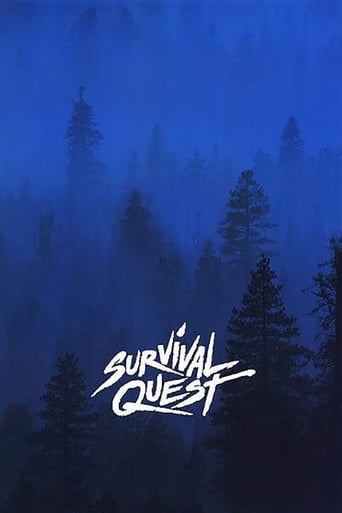


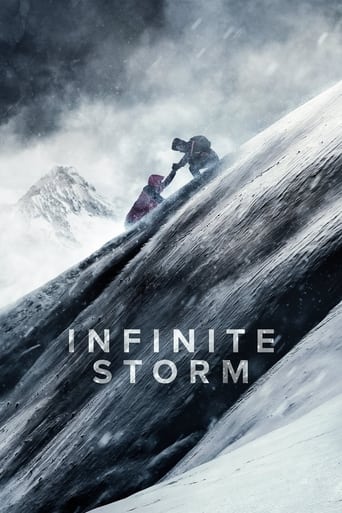
Reviews
If you have a taste for something non-Hollywood, and a liking for vast barren spaces, Kekexili (pronounced Cuca Seely) is highly recommended.It is part of the Tibetan high plateau, and the antelope on it have been poached almost to extinction. The patrol, all unofficial volunteers in 4x4s, track the poachers across the arid plains and snow-dusted mountains almost to the point of insanity. It's like an old- fashioned cowboy movie, with different scenery and a different flavor. Based on real events, it is very professionally done and holds one's interest right to the end. In Tibetan and Chinese with English subtitles.
Set in stunning scenery on the titular Tibetan plateau, "Mountain Patrol: Kekexili" recreates an extraordinary grassroots effort in the 1990's by supremely dedicated idealists to stop poaching of the Tibetan antelope -- mano to mano with no satellite phones or navigation equipment or much in the way of weapons. For all the thrilling nobility of the volunteers and grueling challenges they face from man and nature, the film naggingly feels like a propaganda effort supported by the Chinese government to show how it supports Tibetan initiatives (including a somewhat smug statement at the end that they have now taken over the protection job from the volunteers). I felt complicit in the occupation even as I got caught up in the film.Their struggle to save the antelope vividly recalls scenes of how the buffalo was decimated in "Dances With Wolves", though we get no inkling of the role of the antelopes in Tibetan culture, so saving them just seems either altruism about a rare animal, nationalism, obsession, stubbornness or macho independence.While we meet several of the volunteers in their isolated monitoring stations and frustrating chases who have a range of personalities and relationships, it is a bit hard to differentiate them other than by the vehicles they are driving or jewelry they're wearing. The exceptions are the patrol's charismatic leader Ri Tai (Duobuji captures the screen) and our entrée to this world, a Beijing-based investigative journalist with Tibetan roots (Ga Ju played by Zhang Lei who effectively communicates his transformation by his experiences).Whle the sense of swaggering male camaraderie is well captured in a military-like bonding of living, traveling and partying hard, they say the area's name translates to "land of beautiful women" and that's supported by the few we see during brief respites.In addition to the breathtaking scenes of the Tibetan plateau, better seen on the wide screen than on TV, in a range of extremely challenging weather and geographic elements (one scene in quick sand is particularly harrowing), the views of Tibetan towns and quotidian life in the mountains are an intriguing sidelight.The subtitles were only hard to read as white on white a few times, though a couple of times they lingered on the screen too long past a dialog, blocking views. National Geographic co-produced the film and has additional information about the film and the cause at their Web site (though for some reason IMDb doesn't consider their's the official movie site).
Meaning "Beautiful mountains; beautiful maidens" in Tibetan, Kekexili is the relentless, harsh mountainous plateau in China's interior west just at the border of Tibet. Together with the splendorous scenery comes ferocious snowstorms and treacherous quicksand. It's these forces of nature that eventually brought peril to a troop of voluntary mountain patroller in the pursuit of poachers of the near-extinct Tibetan antelopes during the mid 90s.The story of the voluntary mountain patrol is told through a Beijing report who accompanied them through a 10-day quest to track down a band of poachers who kidnapped and murdered one of their men. Led by indefatigable leader Ritai, these volunteers from all walks of life shared a common passion, there fervent love of the lordly Tibetan antelopes and hence their furious hatred of the ruthless poachers. The intensity of this passion is brought home to the audience when they witness a scene of a mountain plain littered by hundreds of carcasses of skinned antelopes in the middle of being picked clean by carrion crows, and later reinforced by a similar scene, with the skin of these antelopes spread out to dry, some with crimson bullet holes.Filmed as a semi-documentary, Kekexili does not portray the patrollers as one-dimensional heroes as some Hollywood flicks might have done. We see them, during their red-hot pursuit, rough-handling a minor offender caught with antelope hair instead of cotton padding his coat and a couple of worm catchers who happened to have witnessed the poacher passing by. But these are minor, as we gradually come to understand that desperate for financial resources, as they were only semi-official and not paid by the provincial government, the mountain patrol resorted to selling some of the pelts they confiscated from the poachers. But the lasting impression left with us of the mountain patrol would be their humanity, their simple zest for life, their comradeship, their self-sacrificing spirit and their absolute dedication to doing what they believe in.Kekexili is a deeply moving account of a true story crying out to be told, and has won awards in Tokyo and Taiwan. It deserves to be seen by the rest of the world.* * * After the first screening of Kekexili in the Hong Kong International Film Festival (22 March to 6 April 2005), young, handsome director Lu Chuan answered questions from the audience in Putonghua and respectably fluent English.He explained that he was moved to making this film after reading the report of the Beijing photojournalist Ga Yu. The film took two years in preparation before filming, and was shot at the exact locations of the actual events. He said that in filming the story of the mountain patrol, he was not trying to provide an answer to what fuelled their devotion, but just to reflect what actually happened. On the minor questions, he explained that the five hundred odd carcasses in the film were not from killing antelopes (yes, that was the question!), but were actually from mountain goats that was the natives' normal food. And yes, he himself did try eating raw meat, as the reporter did in the movie, when offered a leg just cut from a rabbit freshly shot..Breaking of the story by the Beijing reporter brought sensational worldwide reaction. In response, the government took strong measures and formed an official force to stamp out poaching of the antelopes. The voluntary mountain patrol, having thus achieved its goal, was disbanded. The population of the Tibetan antelope has since increased.
While I know I am biased and I will explain why, I still feel I should write and try and express the depth of feeling I have for this film.My brother, Alex Graf was a production manager for Columbia Tri-star Asia. He was returning from the filming location in western China when he was killed in a vehicle accident.OK, now you know why I am biased towards this film. That being said, this is a very powerful, visceral film. It is definitely not a feel good film and is, at times very hard to watch. The setting is in the western Chinese high desert. To describe the scenery as beautiful, breathtaking and desolate would be to massively understate it. What an incredibly vast, unforgiving, yet hauntingly mesmerizing landscape, and Lu Chuan takes full advantage of this. One aspect of the film that is unexpected, and demonstrates Lu Chuan's mastery of film making is that you expect to despise the poachers but somehow you end up understanding their plight as much as that of the patrol. If what I have written here still doesn't move you to see this film then see the film as see for yourself you will not be disappointed. Andrew Graf
